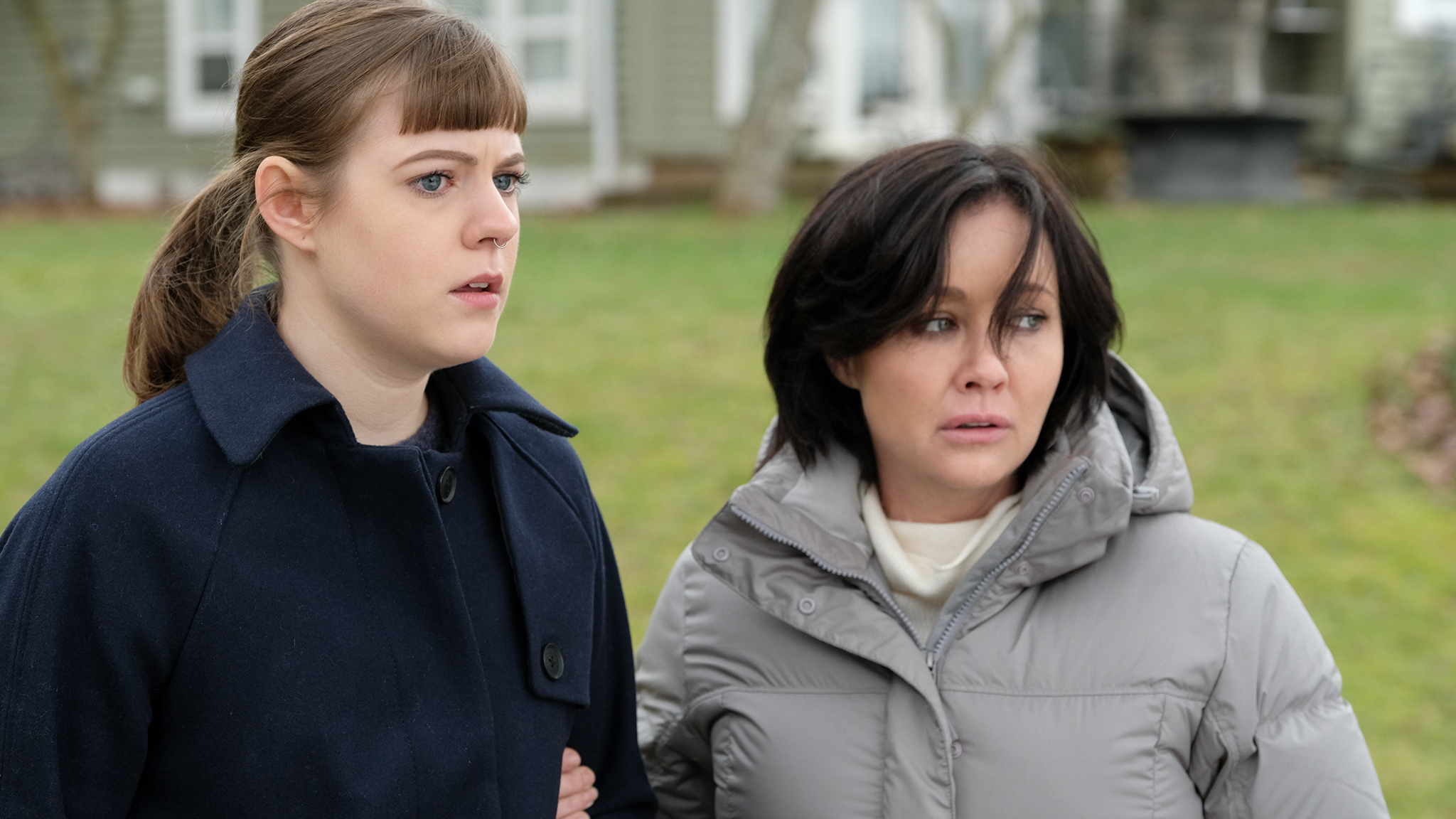When a daughter’s opening up to her mother about a new boyfriend and that confusing rush of feelings (“He says he loves me… It feels like it’s happening fast.”), the wonder can turn to worry in an instant.
In Lifetime’s "No One Would Tell," premiering September 16 at 8/7c, Shannon Doherty plays a single mother with her own history of challenging relationships who is at first pleased to hear that her daughter, Sarah, has a boyfriend nicknamed “McDreamy Jr.” Even as hints turn to urgent warnings about the boyfriend’s dark side, Laura has trouble facing the worst — until her daughter goes missing and she finds herself fighting for justice at a trial preceded over by a powerful judge, played by Mira Sorvino.
It’s an update of Lifetime's 1996 movie of the same name starring Candace Cameron Bure, Fred Savage and Michelle Phillips. Based on a true story of a Massachusetts high school student who murdered his 14-year-old girlfriend, it was a movie that kick-started many a conversation about teens and abusive relationships.
Unhealthy relationships can start early and last a lifetime — and some of them lead to abusive and violence, according to a report by the Centers for Disease Control and Prevention. Teen intimate partner violence is widespread, with many reluctant to admit the truth to their family and friends.
One study found that nearly 12 percent of all high school females reported physical violence and nearly 16 percent reported sexual violence from a dating partner in the 12 months before they were surveyed. And as teens develop, these unhealthy and abusive relationships take a heavy toll, with increased incidents of depression and anxiety, anti-social behaviors, drug and alcohol use, and suicidal thoughts.
At a national conference held this summer at John Jay College in New York City, Lynn Rosenthal, who heads the Violence Against Women Initiative at the Biden Foundation, said one in three women will experience some form of abuse by an intimate partner in their lifetime, and 70 percent of those incidents will occur when the woman is under the age of 25.
“It’s a burden borne by young women,” said Rosenthal at the conference.
At the same conference, experts said it’s important for parents to realize that an abusive element in a relationship begins with seemingly “harmless” things, like a boyfriend saying, “You shouldn’t have sugar in your iced coffee.” The “you shouldn’t” is an early sign of an attempt at control. The next thing to look for is a young man who wants to know where his girlfriend is at all times — and social media, other smartphone tools and apps make this easier than ever before.
The constant presence of phones and the nature of teen relationships allow abusers to skirt the kinds of security mechanisms that stop stranger hackers. Abusers can readily gain physical access to their partners’ devices, and they either know their passwords and PINs or can guess them. Once an abuser has broken into the victim’s device, he can install software that monitors the person’s activities, including text messages and all pictures and videos, and of course her location. This level of exerted control is important for parents to monitor.
To learn more about violence protection, visit cdc.gov/violenceprevention or call 1-800-CDC-INFO (232-4636).
